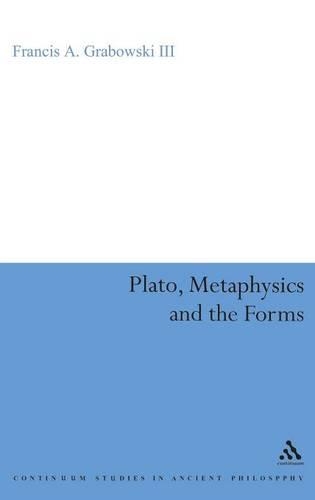
Plato, Metaphysics and the Forms
(Hardback)
Publishing Details
Plato, Metaphysics and the Forms
By (Author) Professor Francis A. Grabowski III
Bloomsbury Publishing PLC
Continuum International Publishing Group Ltd.
24th April 2008
United Kingdom
Classifications
Tertiary Education
Non Fiction
Philosophy: metaphysics and ontology
184
Physical Properties
Hardback
176
Width 156mm, Height 234mm
Description
Few philosophical doctrineshave been as influential and as widely discussed as Plato's theory of Forms; yet few have been as misunderstood. Most philosophers, following the recommendation of Aristotle, regard the Forms as abstract entities. However, this view is difficult to square with other aspects of Plato's thought, in particular his theory of knowledge. Francis A. Grabowski aims to dissociate the theory of Forms from its Aristotelian reception, by interpreting it within the larger framework of Plato's philosophy. Grabowski notes that the theory emerged largely from epistemological concerns. He shows that the ancients conceived of knowledge almost exclusively as a perception-like acquaintance with things. He goes on to examine Plato's epistemology and shows that Plato also regards knowledge as the mind being directly acquainted with its object. Grabowski argues that, by modelling knowledge on perception, Plato could not have conceived of the Forms as Aristotle and others have claimed. He concludes that an interpretation of the Forms as concrete rather than abstract entities provides a more plausible and coherent view of Plato's overall philosophical project.
Reviews
'Grabowski offers a challenge to the widespread view that Plato's Forms are universal properties ... Any serious student of Plato's metaphysics should find stimulating and rewarding Grabowski's carefully and lucidly crafted interpretation.' Herbert Granger, Professor of Philosophy, Wayne State University, USA
"a book worth reading" A.H. Lesser, The international journal of the platonic tradition, 2009
Review in Philosophie Antique, 2009
Author Bio
Francis A. Grabowski is Assistant Professor of Philosophy at Rogers State University, USA.
